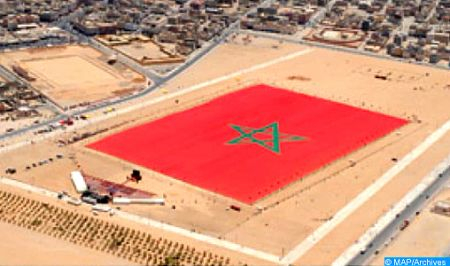C24/Sahara: Antigua and Barbuda Backs Autonomy Plan as ‘Compromise Solution’
Antigua and Barbuda has expressed before the members of the Committee of 24 (C24) of the United Nations its support for the autonomy plan as the “compromise solution” to settle the dispute over the Moroccan Sahara. The plan presented by Morocco in 2007 “is consistent with international law, the UN Charter and resolutions of the Security Council and the UN General Assembly,” said the Permanent Secretary of the Ministry of Foreign Affairs, Trade & Immigration of Antigua and Barbuda, Anthony Liverpool, at the regional seminar of the C24 for the Caribbean held in Castries in St. Lucia. In that regard, he recalled that the Security Council, in its successive resolutions since 2007, including Resolution 2602, welcomed Morocco’s “serious and credible” efforts to resolve this regional dispute, in particular the autonomy plan. “This autonomy plan enjoys strong international support,” said the official who cited the recent positions of Germany and Spain. He also voiced his country’s support for the political process conducted under the aegis of the UN Secretary-General to reach a realistic, pragmatic and sustainable political solution, based on compromise as stated in the 18 Security Council resolutions since 2007. Welcoming the holding of roundtables with the participation of Algeria, Morocco, Mauritania, and the polisario, in accordance with the Security Council resolutions, including Resolution 2602, Liverpool highlighted the request by the UN executive body to the four parties to remain engaged throughout the duration of this process, in a spirit of realism and compromise, to ensure a successful outcome to the issue. In the same vein, the representative of Antigua and Barbuda welcomed the appointment of Mr. Staffan de Mistura as the UNSG Personal Envoy for the Sahara, as well as his recent tour to the region. He also paid tribute to his efforts to revive the roundtable process and to capitalize on the progress made by his predecessor Horst Köhler with the four participants and in the same format. On the same occasion, Liverpool highlighted the legislative, communal, and regional elections that took place in Morocco, including in the Southern Provinces. These elections were held in a democratic, free and transparent climate without any incident as confirmed by all national and international observers. He welcomed the participation of the elected representatives of the Sahara in the regional seminars of the C24, as well as in the two previous editions of the roundtables that took place in Geneva. Liverpool also highlighted the socio-economic development underway in the Southern Provinces thanks to the efforts and investments made by Morocco under the new development model launched in 2015. This model has greatly contributed to the emancipation of local populations as illustrated by the Human Development Indicators, he said, praising the dynamics of the inauguration of several consulates in the cities of Dakhla and Laayoune, as well as Morocco’s efforts in the fight against the Covid-19 pandemic. On the “substantial” achievements of Morocco in the field of human rights, the official stressed the strengthening of the role of regional commissions of the National Council for Human Rights (CNDH) in Laayoune and Dakhla, in addition to cooperation with the Office of the High Commissioner for Human Rights (OHCHR), treaty bodies and with special procedures of the Human Rights Council. In the same vein, he welcomed the full respect by Morocco for the ceasefire, while calling on other parties to do the same in the interest of stability and security in the region. Antigua and Barbuda, which is concerned about the situation of the people in the camps of Tindouf, Southwestern Algeria, especially women and children, denounces the “violations” of the basic rights of these categories, Liverpool stated. He also stressed the need to register and census these populations in accordance with international humanitarian law, the mandate of the Office of the United Nations High Commissioner for Refugees (UNHCR), the recommendations of the UN Secretary-General, and all the Security Council resolutions since 2011, including Resolution 2602.

